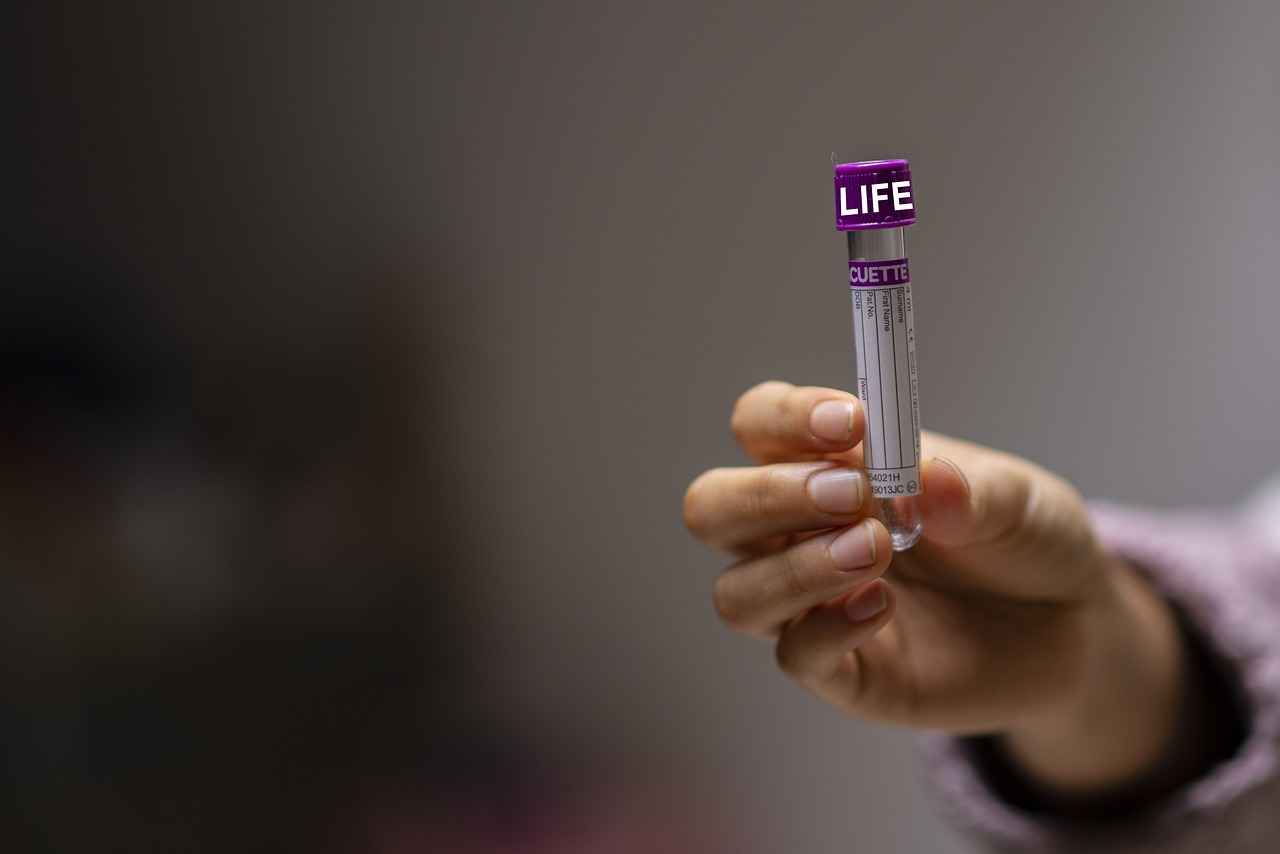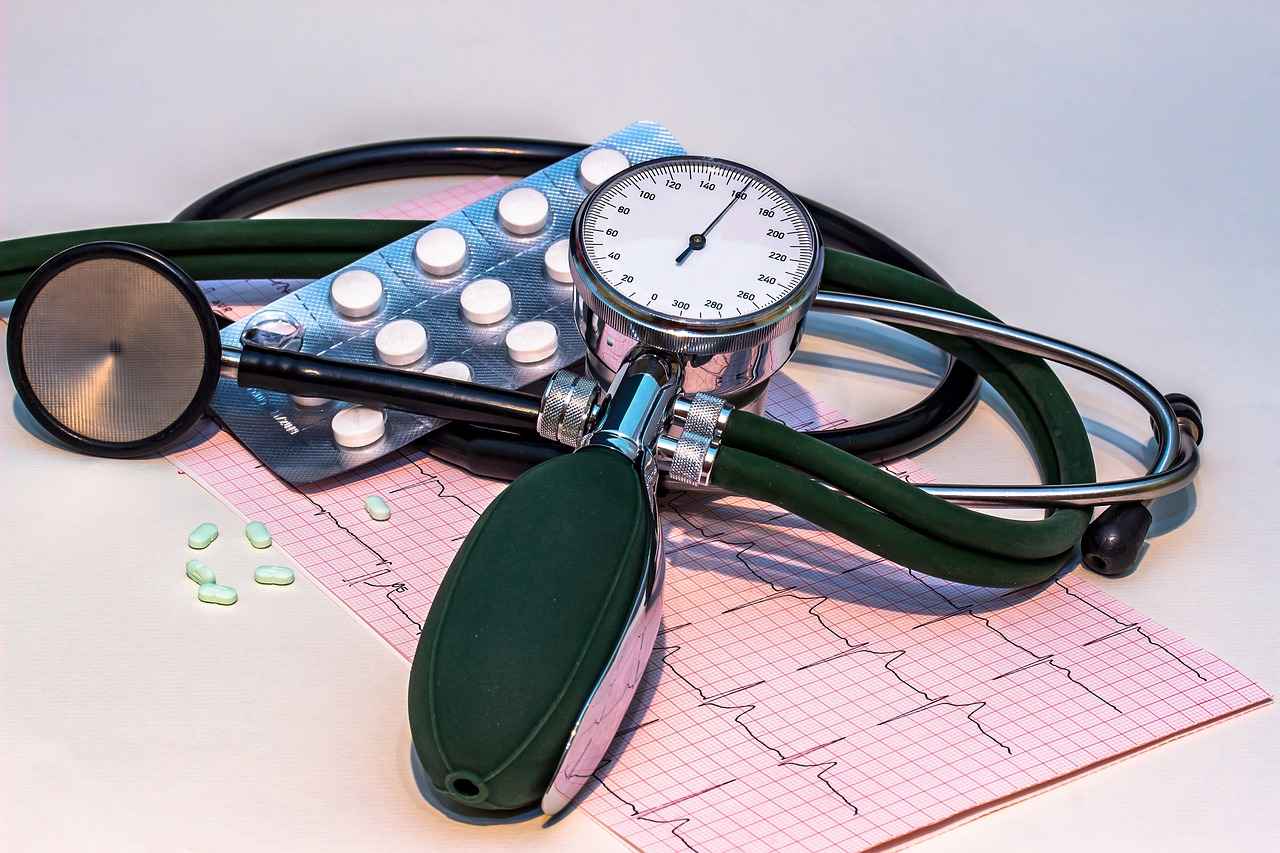This article delves into the effects of drinking water prior to blood tests, addressing common questions and providing insights into how hydration may influence test outcomes and overall health assessments.
Understanding Blood Tests
Blood tests are vital diagnostic tools that assist healthcare providers in evaluating a patient’s health. They can reveal various conditions, assess organ function, and offer insights into metabolic and hormonal levels. Understanding the nuances of blood tests is essential for accurate diagnosis and treatment.
The Importance of Hydration
Staying hydrated is crucial for overall health, and it can significantly impact various bodily functions. Proper hydration is essential for accurate blood test results, as it can affect the volume and viscosity of blood, as well as the concentration of certain substances.
- How Hydration Affects Blood Volume: Adequate hydration increases blood volume, facilitating easier blood draws and potentially affecting the concentration of substances measured in blood tests.
- Effects on Blood Viscosity: Hydration levels influence blood viscosity. Thicker blood may complicate testing, while well-hydrated individuals typically have more fluid blood, making sample collection easier.
- Influence on Electrolyte Levels: Drinking water can dilute electrolyte concentrations in the blood. Understanding this dilution is crucial for accurate interpretation of electrolyte levels.
Common Types of Blood Tests
Different blood tests serve various purposes, including complete blood counts (CBC), metabolic panels, and lipid profiles. Each type may have unique requirements regarding hydration.
Should You Drink Water Before a Blood Test?
The general guideline for most blood tests is that drinking water is usually permissible and often recommended. However, specific tests may have different requirements.
- Tests That Allow Water Intake: For many routine tests, drinking water is encouraged. Tests like CBCs and basic metabolic panels often benefit from hydration.
- Tests Requiring Fasting: Certain blood tests, such as glucose and lipid panels, may require fasting. Understanding the specifics of these tests is vital for obtaining reliable results.
Potential Effects of Dehydration on Test Results
Dehydration can lead to skewed test results, affecting the accuracy of various measurements and potentially leading to misdiagnosis or inappropriate treatment.
- Impact on Kidney Function Tests: Dehydration can artificially elevate levels of creatinine and other markers used to assess kidney function, leading to misleading conclusions about renal health.
- Effects on Blood Sugar Levels: Inadequate hydration can affect blood sugar readings, potentially resulting in inaccurate assessments of glucose metabolism and diabetes management.
Best Practices for Preparing for a Blood Test
Preparation is key to ensuring accurate blood test results. Understanding hydration guidelines and other preparatory steps can help patients achieve the best outcomes.
- Consulting with Healthcare Providers: Always consult with your healthcare provider about specific instructions regarding hydration and fasting before a blood test to ensure optimal results.
- Timing Your Water Intake: Knowing when to drink water can make a difference. Generally, drinking water a few hours before the test is advisable for most blood tests.
In summary, staying hydrated before a blood test can significantly influence the accuracy of the results. While most tests allow for water intake, it’s essential to follow specific guidelines set by healthcare providers. By understanding the role of hydration, patients can better prepare for their blood tests and ensure reliable outcomes.

Understanding Blood Tests
Blood tests are essential diagnostic tools that play a critical role in the assessment of a patient’s health. By analyzing various components of blood, healthcare providers can detect a wide range of medical conditions, monitor organ function, and gather valuable information regarding metabolic and hormonal levels. Understanding blood tests is crucial for both patients and healthcare professionals alike.
These tests can identify diseases such as diabetes, anemia, and infections, among others. They also help in evaluating how well organs like the liver and kidneys are functioning. For instance, a comprehensive metabolic panel can reveal important insights into a patient’s electrolyte balance, blood sugar levels, and kidney function.
Moreover, blood tests can be categorized into several types, including:
- Complete Blood Count (CBC): Measures various components of blood, including red and white blood cells, hemoglobin, and platelets.
- Metabolic Panels: Assess glucose levels, electrolyte balance, and kidney function.
- Lipid Profiles: Measure cholesterol levels and assess cardiovascular risk.
Each of these tests serves a unique purpose and may have specific requirements regarding hydration and preparation. For example, hydration can significantly influence the results of certain tests, making it essential to understand how water intake interacts with blood analysis.
Staying properly hydrated is not only vital for overall health but also impacts the accuracy of blood tests. Adequate hydration increases blood volume, which can facilitate easier blood draws and may affect the concentration of substances measured in tests. Conversely, dehydration can lead to skewed results, potentially resulting in misdiagnosis or inappropriate treatment.
Furthermore, hydration affects blood viscosity. Thicker blood can complicate testing procedures, while well-hydrated individuals typically present with more fluid blood, making it easier for healthcare providers to obtain samples. It’s important to note that drinking water can also dilute electrolyte concentrations in the blood, which may impact test interpretations.
When preparing for blood tests, it is advisable to consult with healthcare providers regarding specific instructions related to hydration and fasting. While most routine tests allow for water intake, certain tests, such as glucose and lipid panels, may require fasting. Understanding these guidelines can help ensure accurate results and effective medical assessments.
In conclusion, blood tests are invaluable in diagnosing and monitoring health conditions. Proper hydration is a key factor in obtaining reliable test results, and patients should be aware of the implications of their water intake before undergoing testing. By staying informed and following best practices, individuals can contribute to their health assessments and work collaboratively with healthcare providers to achieve optimal outcomes.

The Importance of Hydration
Hydration is a vital component of maintaining good health, yet it is often overlooked. Staying hydrated plays a significant role in numerous bodily functions, including digestion, temperature regulation, and nutrient transport. It is particularly important to understand how hydration impacts blood tests, as accurate results are crucial for effective medical assessments.
Blood tests are essential diagnostic tools used by healthcare professionals to evaluate a patient’s overall health. They provide insights into organ function, metabolic processes, and hormonal levels. However, the accuracy of these tests can be influenced by the individual’s hydration status.
When the body is adequately hydrated, blood volume increases, which can facilitate easier blood draws. Higher blood volume also helps in obtaining more accurate measurements of various substances in the blood, such as glucose and electrolytes. Conversely, dehydration can lead to a reduction in blood volume, making it more challenging to draw blood and potentially skewing test results.
Hydration levels significantly influence blood viscosity. Dehydrated individuals may experience thicker blood, which can complicate the blood collection process. In contrast, well-hydrated individuals typically have more fluid blood, making it easier for healthcare providers to obtain samples and ensuring more reliable test results.
Drinking water before a blood test can dilute electrolyte concentrations, which is essential for accurate interpretation. Electrolytes like sodium, potassium, and chloride play crucial roles in bodily functions, and their levels must be measured correctly for effective diagnosis and treatment.
Different blood tests serve various purposes, each with unique hydration requirements. For example, complete blood counts (CBC), metabolic panels, and lipid profiles may have different guidelines regarding water intake. Understanding these requirements can help patients prepare effectively for their tests.
In general, drinking water before a blood test is permissible and often recommended. Staying hydrated can lead to easier blood collection and more accurate results for many routine tests, such as CBCs and basic metabolic panels. However, certain tests, such as glucose and lipid panels, may require fasting, so it is essential to follow specific guidelines provided by healthcare providers.
Dehydration can lead to skewed test results, impacting the accuracy of various measurements. For instance, dehydration may artificially elevate creatinine levels, potentially misrepresenting kidney function. This can lead to misleading conclusions and inappropriate treatment plans.
Inadequate hydration can result in elevated levels of creatinine and other markers used to assess kidney health. This misrepresentation can complicate the diagnosis and management of renal conditions.
Similarly, dehydration can influence blood sugar readings. Inadequate hydration may lead to inaccurate assessments of glucose metabolism, which is critical for managing diabetes effectively.
Preparation is key to ensuring accurate blood test results. Patients should consult with their healthcare providers about specific instructions regarding hydration and fasting. Knowing when to drink water is also essential; generally, consuming water a few hours before the test is advisable for most blood tests.
Always consult with a healthcare provider regarding specific hydration and fasting instructions before a blood test. This will help ensure optimal results and a better understanding of personal health.
Understanding the timing of water intake can make a significant difference in test outcomes. Drinking water adequately and at the right time can enhance the accuracy of test results, leading to better health assessments.
How Hydration Affects Blood Volume
When it comes to preparing for a blood test, one of the often-overlooked factors is hydration. Proper hydration plays a significant role in various physiological processes, particularly in the context of blood volume and the ease of blood draws. This section delves into how adequate hydration affects blood volume and its implications for blood tests.
Maintaining adequate hydration is essential for the body’s overall functioning. When you drink enough water, it increases the volume of blood circulating through your system. This increase in blood volume can have several positive effects during blood tests:
- Easier Blood Draws: A well-hydrated person typically has more fluid blood, which can make it easier for healthcare professionals to draw samples. Thicker blood, often a result of dehydration, can complicate the process and may lead to multiple attempts to obtain a sample.
- Impact on Test Results: Hydration can also influence the concentration of various substances in the blood. For instance, certain biomarkers may be diluted in a well-hydrated state, leading to more accurate measurements.
- Improved Circulation: Increased blood volume enhances circulation, which can be beneficial for the overall health of organs and tissues. This improved circulation can also aid in the delivery of nutrients and oxygen to cells, supporting metabolic processes.
In addition to these benefits, hydration plays a crucial role in regulating body temperature and maintaining normal physiological functions. When you are dehydrated, your body may not function optimally, which can skew test results.
The viscosity of blood, or its thickness, is another important factor influenced by hydration levels. Dehydration can lead to increased blood viscosity, making it more difficult for healthcare providers to draw blood. This can result in:
- Complications During Testing: Thicker blood can cause complications such as hemolysis, where red blood cells break down, potentially leading to inaccurate test results.
- Increased Risk of Clots: Higher viscosity can also increase the risk of clot formation, which can further complicate blood draws and affect overall health.
Another important aspect of hydration is its effect on electrolyte levels in the blood. Drinking water can dilute the concentrations of electrolytes, which are vital for many bodily functions, including:
- Nerve Function: Electrolytes are crucial for conducting electrical impulses in the nervous system.
- Muscle Contraction: Proper electrolyte balance is necessary for muscle function, including the heart.
Understanding how hydration affects electrolyte levels is essential for interpreting test results accurately, especially for tests that measure these critical substances.
To ensure you are adequately hydrated before a blood test, consider the following tips:
- Drink Water: Aim to drink at least 8-10 glasses of water daily, and increase your intake before your test.
- Avoid Caffeine and Alcohol: These substances can lead to dehydration, so it’s best to limit them prior to your test.
- Timing is Key: Drink water gradually in the hours leading up to your test rather than consuming a large amount all at once.
In summary, adequate hydration is vital for maintaining optimal blood volume, which facilitates easier blood draws and can influence the accuracy of test results. By understanding the importance of hydration, you can take proactive steps to prepare for your blood tests effectively.
Effects on Blood Viscosity
When it comes to blood tests, one critical factor that can significantly influence the results is blood viscosity. This refers to the thickness of the blood, which can be affected by various factors, including hydration levels. Understanding how hydration impacts blood viscosity is essential for ensuring accurate test results and maintaining overall health.
Hydration and Blood Viscosity
Blood viscosity is primarily determined by the concentration of cells and proteins in the blood. When a person is well-hydrated, their blood tends to be thinner, allowing for easier circulation and more efficient blood draws during testing. Conversely, dehydration can lead to thicker blood, which may complicate the blood collection process and skew test results.
Thicker blood can cause several issues during a blood test, including:
- Difficulty in Blood Collection: Thicker blood can make it challenging for healthcare providers to obtain a sample, potentially leading to multiple attempts or the need for alternative sites.
- Inaccurate Test Results: Elevated viscosity can affect the concentration of various substances in the blood, leading to misleading results. For instance, certain tests may indicate higher levels of cholesterol or glucose than are actually present.
- Increased Risk of Complications: In severe cases, thick blood can increase the risk of clotting, which can complicate medical assessments and lead to further health issues.
On the other hand, individuals who are adequately hydrated typically experience a smoother blood draw process. This is because their blood is more fluid, allowing for easier extraction of samples. Moreover, hydration can help maintain optimal blood volume, which is crucial for accurate test results.
How to Maintain Proper Hydration
To ensure that hydration levels are optimal before a blood test, consider the following tips:
- Drink Water: Aim to consume sufficient water in the days leading up to the test. A general guideline is to drink at least 8 glasses of water daily, but individual needs may vary.
- Avoid Dehydrating Beverages: Limit intake of caffeine and alcohol, as these can lead to dehydration.
- Timing Your Water Intake: It’s advisable to drink water a few hours before the test. However, avoid excessive consumption right before the test, as this may lead to discomfort during blood collection.
Conclusion
In summary, hydration levels play a crucial role in determining blood viscosity, which can significantly impact the accuracy of blood test results. By maintaining proper hydration, individuals can facilitate easier blood draws and ensure that their test results reflect their true health status. Always consult with healthcare providers for personalized advice regarding hydration and preparation for blood tests.
Influence on Electrolyte Levels
Understanding the influence of hydration on electrolyte levels is vital for accurate interpretation of blood test results. Electrolytes, such as sodium, potassium, and chloride, play crucial roles in maintaining fluid balance, nerve function, and muscle contraction. When a person consumes water, it can lead to a dilution of these essential minerals in the bloodstream.
When hydration levels are increased through drinking water, the concentration of electrolytes may decrease, potentially leading to misinterpretation of test results. This dilution can cause healthcare providers to mistakenly conclude that a patient has low electrolyte levels, which may not accurately reflect their true physiological status. For instance, a low sodium level, known as hyponatremia, could be falsely indicated if a patient is overly hydrated prior to testing.
It is essential to understand that the body’s homeostatic mechanisms usually regulate electrolyte concentrations effectively. However, excessive water intake can overwhelm these systems, especially in individuals with underlying health conditions. For example, patients with kidney dysfunction may struggle to excrete excess water, leading to further dilution of electrolytes and skewed test results.
Moreover, the timing and amount of water consumed before a blood test can significantly impact the accuracy of electrolyte measurements. Healthcare professionals often recommend that patients drink water in moderation before testing. This practice helps to ensure that blood samples are drawn from well-hydrated individuals without excessively diluting the electrolyte concentrations.
In addition to electrolyte levels, hydration status can also influence other blood test parameters. For example, dehydration can lead to increased concentrations of certain substances, such as creatinine, which might suggest kidney issues even when the kidneys are functioning properly. Therefore, it is crucial for patients to follow specific guidelines provided by their healthcare providers regarding hydration before a blood test.
In summary, while staying hydrated is important for overall health, it is equally important to consider how water intake can affect electrolyte levels in the context of blood tests. Patients should be aware of how their hydration status may impact test outcomes and communicate openly with their healthcare providers about their pre-test hydration practices. By doing so, they can contribute to more accurate diagnoses and effective treatment plans.
| Electrolyte | Function | Impact of Dilution |
|---|---|---|
| Sodium | Regulates fluid balance and blood pressure | Low levels may lead to confusion and muscle cramps |
| Potassium | Essential for heart and muscle function | Low levels can cause arrhythmias and weakness |
| Chloride | Helps maintain acid-base balance | Low levels may affect digestion and respiratory function |
Ultimately, understanding the relationship between hydration and electrolyte levels is crucial for both patients and healthcare providers. Proper preparation for blood tests can lead to more reliable results and better health outcomes.
Common Types of Blood Tests
Blood tests are vital diagnostic tools that provide insight into a person’s health status. Different types of blood tests serve various purposes, helping healthcare professionals make informed decisions. Below, we explore some of the most common types of blood tests, their specific functions, and how they relate to hydration requirements.
- Complete Blood Count (CBC): This test evaluates the overall health of an individual and detects a variety of disorders, including anemia, infection, and leukemia. A CBC measures several components of blood, including red blood cells, white blood cells, and platelets. Hydration can significantly affect the viscosity and volume of blood, making it easier for healthcare providers to draw samples.
- Metabolic Panel: This group of tests assesses various chemical components in the blood, providing crucial information about metabolism, kidney function, and electrolyte balance. There are two primary types: the basic metabolic panel (BMP) and the comprehensive metabolic panel (CMP). Adequate hydration is essential for accurate readings, as dehydration can concentrate certain substances, leading to misleading results.
- Lipid Profile: This test measures the levels of different types of fats in the blood, including cholesterol and triglycerides. It is commonly used to assess the risk of heart disease. Fasting is often required before a lipid profile, but drinking water is generally allowed. Staying hydrated can help ensure a smoother blood draw and more accurate lipid measurements.
- Thyroid Function Tests: These tests measure the levels of thyroid hormones in the blood, providing insights into thyroid gland function. Proper hydration can affect blood viscosity, making it easier for healthcare professionals to obtain samples without complications.
- Coagulation Tests: These tests evaluate the blood’s ability to clot, which is crucial for diagnosing bleeding disorders. Hydration can influence the results of coagulation tests, as thicker blood may lead to inaccurate readings.
Each of these tests plays a crucial role in diagnosing and managing health conditions. However, it is important to note that hydration requirements can vary significantly between tests. For instance, while some tests allow water intake, others may require fasting or specific preparation to ensure accurate results.
Understanding the distinct requirements for each type of blood test can enhance the accuracy of the results. Patients are encouraged to consult with their healthcare providers regarding specific instructions on hydration and fasting before undergoing any blood tests. This proactive approach not only helps in obtaining reliable results but also aids in effective health assessments.
In summary, staying properly hydrated before a blood test can facilitate easier sample collection and improve the accuracy of test results. However, it is equally important to follow the specific guidelines provided by healthcare professionals for each type of blood test.

Should You Drink Water Before a Blood Test?
When preparing for a blood test, one common question arises: should you drink water beforehand? The answer is generally affirmative, but it varies depending on the type of blood test being conducted. This article delves into the importance of hydration before blood tests, outlining guidelines and considerations to ensure accurate results.
Hydration is a critical aspect of maintaining overall health. Drinking water before a blood test can help facilitate an easier blood draw and improve the accuracy of test results. When the body is well-hydrated, blood volume increases, which can lead to more fluid and less viscous blood. This is particularly beneficial for healthcare providers when drawing blood, as it can reduce complications associated with thick blood.
- Complete Blood Count (CBC): For this routine test, drinking water is encouraged. Hydration helps in obtaining a clear sample.
- Basic Metabolic Panel (BMP): Similar to CBCs, BMPs benefit from increased hydration, aiding in accurate assessments of kidney function and electrolyte balance.
- Lipid Profile: While fasting is usually required, it is often permissible to drink water to maintain hydration levels.
Some blood tests, particularly those assessing glucose and lipid levels, may require fasting for accurate results. In these cases, it is essential to adhere to your healthcare provider’s instructions. Notably, fasting typically means abstaining from all food and beverages, except for water. This means you can still hydrate adequately without compromising the test’s integrity.
Dehydration can significantly impact test results. For instance, insufficient hydration can lead to elevated levels of certain substances, such as creatinine, which may falsely indicate kidney dysfunction. Additionally, dehydration can skew blood sugar levels, complicating the management of diabetes and other metabolic conditions.
To ensure optimal results, consider the following best practices:
- Consult with Your Healthcare Provider: Always verify specific hydration guidelines with your doctor, as individual needs may vary based on the tests being performed.
- Timing Your Water Intake: It is advisable to drink water a few hours before your blood test. This timing allows your body to absorb the water and maintain adequate hydration levels without diluting blood components excessively.
- Avoid Other Beverages: Stick to plain water before your test. Juices, caffeine, and alcohol can interfere with test results.
In summary, drinking water before a blood test is generally recommended, as it aids in obtaining accurate results and facilitates easier blood draws. However, always follow specific instructions provided by your healthcare provider based on the type of test being conducted. By understanding the role of hydration and adhering to best practices, you can help ensure the reliability of your blood test results.
Tests That Allow Water Intake
When preparing for a blood test, one of the most common questions patients have is whether they should drink water beforehand. Staying hydrated is crucial for various tests, and understanding which tests allow water intake can make a significant difference in the accuracy of results. This section will explore the types of blood tests that typically permit water consumption, emphasizing the benefits of hydration.
For many routine blood tests, drinking water is not only allowed but often encouraged. Proper hydration can facilitate easier blood collection and enhance the accuracy of test results. Below are some common tests where water intake is generally permissible:
- Complete Blood Count (CBC): This test assesses overall health and detects a range of disorders, including anemia and infection. Staying hydrated can help improve blood flow, making it easier for healthcare providers to collect samples.
- Basic Metabolic Panel (BMP): This panel measures glucose, calcium, and electrolytes. Drinking water prior to this test can help ensure accurate readings by maintaining proper blood volume and viscosity.
- Comprehensive Metabolic Panel (CMP): Similar to the BMP but includes additional tests for liver function and protein levels. Adequate hydration is beneficial for the accuracy of these measurements.
- Lipid Profile: While some lipid panels may require fasting, many healthcare providers recommend drinking water to help with blood collection and to prevent dehydration, which can skew results.
In addition to these tests, many healthcare professionals recommend drinking water before any blood draw to ensure optimal conditions for sample collection. This is especially important for patients who may have difficulty with blood draws due to dehydration or low blood volume.
Hydration plays a vital role in the blood testing process. When a person is well-hydrated, their blood volume increases, which can lead to easier venipuncture and a more accurate assessment of blood constituents. Conversely, dehydration can lead to thicker blood, complicating the collection process and potentially affecting test results.
Moreover, hydration helps maintain the balance of electrolytes in the blood, which is crucial for tests measuring these substances. For instance, drinking water can dilute electrolyte concentrations, allowing for a more accurate interpretation of results.
While many tests allow for water intake, it’s essential to follow specific guidelines:
- Drink water in moderation, typically a few glasses in the hours leading up to the test.
- Avoid beverages with caffeine or sugar, as they can affect hydration levels and potentially skew results.
- Consult with your healthcare provider for specific instructions, especially if you are undergoing tests that may have unique requirements.
In summary, for many routine blood tests, drinking water is not only permitted but recommended. Staying hydrated can facilitate easier blood draws and enhance the accuracy of test results. Understanding the importance of hydration and knowing which tests allow for water intake can help patients prepare effectively and ensure optimal outcomes during their medical assessments.
Tests Requiring Fasting
Certain blood tests necessitate fasting to ensure accurate results. Fasting typically means abstaining from food and sometimes beverages, except for water, for a specified period before the test. Understanding the rationale behind fasting for these tests is essential for patients to achieve reliable outcomes.
- Glucose Tests: Fasting is crucial for glucose tests, especially for diagnosing diabetes. Elevated glucose levels can indicate insulin resistance or diabetes, and fasting helps provide a baseline measurement.
- Lipid Panels: Lipid panels measure cholesterol and triglyceride levels in the blood. Fasting for 9 to 12 hours before the test is recommended to avoid temporary spikes in lipid levels caused by recent food intake.
- Iron Tests: For accurate iron level assessments, fasting is often advised. Food can interfere with the absorption and measurement of iron, leading to misleading results.
- Vitamin B12 and Folate Tests: These tests may also require fasting to ensure that the levels measured reflect the body’s true status without interference from recent meals.
Fasting before these tests is not just a formality; it plays a critical role in ensuring that healthcare providers receive precise data for diagnosis and treatment planning. When patients consume food or drink, it can alter the concentrations of various substances in the blood, leading to inaccurate interpretations.
In addition to the tests mentioned above, certain hormone tests, such as those measuring cortisol levels, may also necessitate fasting. This is because food intake can influence hormone secretion and levels, making it imperative to follow fasting guidelines closely.
It’s important to note that while fasting is necessary for some tests, it is not a universal requirement. Many routine blood tests, such as complete blood counts (CBCs) and basic metabolic panels, allow for water consumption and may not require fasting at all. Therefore, patients should always consult their healthcare providers for specific instructions regarding their upcoming tests.
Moreover, the duration of fasting can vary depending on the test. Some tests may require only a few hours of fasting, while others may require overnight fasting. Patients should be informed about the exact requirements to avoid any last-minute surprises on the day of testing.
In summary, understanding which blood tests require fasting, and the reasons behind these requirements, is essential for patients. Proper adherence to fasting guidelines can significantly enhance the accuracy of test results, leading to better health assessments and treatment plans.
Always consult with your healthcare provider to clarify any doubts regarding fasting and hydration before undergoing blood tests. This proactive approach ensures that patients are well-prepared and can contribute to more accurate diagnoses and effective healthcare.

Potential Effects of Dehydration on Test Results
Dehydration is a common yet often overlooked condition that can have significant implications for health assessments, particularly when it comes to blood tests. Understanding how dehydration can skew test results is crucial for both patients and healthcare providers. In this section, we will explore the various ways dehydration can impact the accuracy of blood tests and the potential consequences of these effects.
When a person is dehydrated, the concentration of various substances in the blood can be altered. This can lead to misinterpretations of test results, which may ultimately affect diagnosis and treatment plans. For instance, dehydration can cause an increase in the concentration of certain markers, leading to false positives in tests that measure kidney function, liver enzymes, and electrolyte levels.
One of the most critical areas affected by dehydration is kidney function testing. When the body lacks sufficient fluids, levels of creatinine and blood urea nitrogen (BUN) can rise. These elevated levels may suggest impaired kidney function, prompting unnecessary further testing or even treatment. In reality, the kidneys may be functioning normally, but the dehydration is misleading the results.
Dehydration can also significantly impact blood sugar readings. When the body is dehydrated, blood plasma volume decreases, which can result in artificially elevated blood glucose levels. This misrepresentation can lead to incorrect conclusions regarding a patient’s glucose metabolism and potential diabetes management. It is essential for healthcare providers to consider hydration status when interpreting these results.
Electrolytes, such as sodium and potassium, play a vital role in numerous bodily functions. Dehydration can lead to a dilution of these electrolytes, affecting their concentrations in the blood. This can result in misdiagnosis of conditions like hyponatremia or hyperkalemia, which may require specific treatment. Understanding the hydration status of a patient is key to accurately interpreting these electrolyte levels.
Hormonal tests, such as those measuring thyroid hormones or cortisol levels, can also be affected by dehydration. The concentration of these hormones can fluctuate based on fluid balance, potentially leading to misleading results. For example, low cortisol levels may be misinterpreted as adrenal insufficiency when dehydration is the underlying cause.
To mitigate the risks associated with dehydration, patients should be proactive in maintaining adequate hydration before undergoing blood tests. Here are some practical tips:
- Drink Water: Aim to drink sufficient water in the hours leading up to your test.
- Consult Your Doctor: Always discuss hydration and fasting requirements with your healthcare provider.
- Avoid Dehydrating Beverages: Limit consumption of caffeine and alcohol before the test, as these can contribute to dehydration.
Dehydration can significantly impact the accuracy of blood tests, leading to potential misdiagnosis and inappropriate treatment plans. By understanding the effects of hydration on test results, patients can take proactive steps to ensure more accurate assessments of their health. Always consult with healthcare providers regarding hydration guidelines to achieve the best possible outcomes in blood testing.
Impact on Kidney Function Tests
The impact of dehydration on kidney function tests is a critical concern that can lead to significant misinterpretations of a patient’s renal health. When the body is not adequately hydrated, the concentration of certain substances in the blood can become artificially elevated. This is particularly evident with markers such as creatinine, which is a waste product produced by muscle metabolism and is commonly measured to assess kidney function.
When dehydration occurs, the kidneys may conserve water, leading to a reduction in urine output. Consequently, this can result in an increase in serum creatinine levels. Elevated creatinine levels can be misleading, suggesting impaired kidney function when, in reality, the kidneys might be functioning normally. This phenomenon emphasizes the importance of proper hydration before undergoing kidney function tests.
Moreover, dehydration can affect other biomarkers used in kidney assessments, such as blood urea nitrogen (BUN). Just like creatinine, BUN levels can rise due to decreased fluid intake, leading to potential misdiagnoses such as acute kidney injury or chronic kidney disease. Therefore, understanding the relationship between hydration status and these markers is crucial for both patients and healthcare providers.
In addition to creatinine and BUN, dehydration can also impact electrolyte balance, which is essential for kidney function. Electrolytes such as sodium, potassium, and chloride play vital roles in maintaining homeostasis. When dehydrated, the concentrations of these electrolytes in the blood can become skewed, complicating the interpretation of test results. For instance, hypernatremia, or elevated sodium levels, may occur in dehydrated individuals, further complicating the clinical picture.
It is also worth noting that the degree of dehydration can influence the severity of these effects. Mild dehydration may cause slight elevations in creatinine and BUN levels, while severe dehydration can lead to more pronounced changes. This variability underscores the need for clinicians to consider hydration status when interpreting kidney function tests.
To mitigate these risks, patients are often advised to maintain adequate hydration leading up to their blood tests. Drinking water before a test can help ensure that the results accurately reflect kidney function rather than being skewed by a lack of fluid intake. However, it is essential to follow specific guidelines provided by healthcare professionals, as some tests may require fasting or have other restrictions.
In summary, dehydration can significantly impact kidney function tests by artificially elevating levels of creatinine and other markers. This can lead to misleading conclusions about a patient’s renal health. It is crucial for both patients and healthcare providers to recognize the importance of hydration in the context of kidney assessments to avoid misdiagnosis and ensure appropriate treatment plans.
For optimal results, patients should engage in open communication with their healthcare providers regarding hydration practices before undergoing blood tests. By taking proactive measures to stay hydrated, individuals can help ensure that their test results accurately reflect their health status, particularly concerning kidney function.
Effects on Blood Sugar Levels
When it comes to managing diabetes and monitoring blood sugar levels, hydration plays a crucial role. Inadequate hydration can significantly affect blood sugar readings, leading to potential inaccuracies in assessing glucose metabolism. Understanding how hydration impacts these readings is essential for effective diabetes management.
Blood sugar levels are typically measured through various tests, including fasting blood glucose tests and HbA1c tests. These measurements provide vital information about how well the body is managing glucose. However, if a patient is dehydrated, the concentration of glucose in the blood can become artificially elevated. This can occur because dehydration reduces plasma volume, which means that the same amount of glucose is present in a smaller volume of blood, resulting in higher measured concentrations.
Moreover, dehydration can lead to increased levels of stress hormones, such as cortisol and epinephrine, which can also contribute to elevated blood sugar levels. These hormones trigger the liver to release more glucose into the bloodstream, further complicating the interpretation of test results. Therefore, it is vital for individuals, particularly those with diabetes, to maintain adequate hydration to ensure accurate blood sugar readings.
Additionally, hydration status can influence insulin sensitivity. When the body is well-hydrated, the cells are more responsive to insulin, which helps in effectively regulating blood sugar levels. Conversely, dehydration can lead to insulin resistance, making it more challenging to control blood sugar levels, especially after meals.
Given these factors, it is essential for patients to be mindful of their hydration before undergoing blood tests. Here are some practical insights:
- Drink Water Regularly: Aim to drink ample water throughout the day, especially leading up to a blood test. This helps ensure that blood volume is adequate and can lead to more accurate readings.
- Avoid Dehydrating Beverages: Limit the intake of caffeinated and alcoholic beverages, as these can contribute to dehydration and skew test results.
- Consult Healthcare Providers: Always discuss hydration guidelines with your healthcare provider, especially if you have specific conditions like diabetes that require careful monitoring of blood sugar levels.
In summary, hydration is not just a matter of overall health; it is a critical factor in accurately assessing blood sugar levels. For individuals managing diabetes, maintaining proper hydration can lead to more reliable test results and better overall management of their condition. Therefore, being proactive about hydration can help mitigate the risks associated with inaccurate blood sugar readings.

Best Practices for Preparing for a Blood Test
Preparing for a blood test is essential for obtaining accurate results that reflect your true health status. Preparation is key to ensuring that the information gathered during the test is reliable and useful for your healthcare provider. This article outlines the best practices for preparing for a blood test, including hydration guidelines and other important steps.
- Understand the Type of Blood Test: Each blood test has specific requirements. Familiarize yourself with the type of test you are undergoing, as this can dictate whether you should fast or hydrate before the test.
- Consult Your Healthcare Provider: Always discuss your upcoming blood test with your healthcare provider. They can provide tailored advice regarding hydration and fasting based on your health history and the specific tests being conducted.
- Hydration Guidelines: For most blood tests, staying hydrated is beneficial. Drinking water helps increase blood volume and can make the blood draw easier. Aim to drink water in the hours leading up to your appointment, but avoid excessive intake right before the test.
- Timing Your Water Intake: Ideally, you should hydrate a few hours before your test. This timing allows your body to process the water, ensuring that your blood is neither too concentrated nor too diluted.
- Avoid Certain Beverages: While water is generally encouraged, avoid beverages like coffee, tea, or alcohol before your test. These can affect hydration levels and may interfere with test results.
- Fasting Requirements: Some blood tests require fasting, particularly those measuring glucose or lipid levels. If your test requires fasting, follow your healthcare provider’s instructions strictly to ensure accurate results.
- Medication Considerations: Inform your healthcare provider about any medications or supplements you are taking. Some substances can alter blood test results, and your provider may recommend adjustments to your routine prior to the test.
- Rest Before the Test: Physical activity can influence certain blood test results. Aim to rest and avoid strenuous exercise before your appointment to ensure that your results accurately reflect your health.
By following these best practices, you can ensure that your blood test results are as accurate as possible. Preparation is essential for achieving the best outcomes, and understanding hydration guidelines and other preparatory steps can significantly influence the results of your blood test.
In summary, being well-prepared for a blood test involves understanding the specific requirements of the test, consulting with healthcare professionals, and adhering to hydration and fasting guidelines. By taking these steps, you can contribute to a more accurate assessment of your health.
Consulting with Healthcare Providers
is an essential step in preparing for any medical procedure, including blood tests. Understanding the specific requirements for hydration and fasting can significantly impact the accuracy of test results. Here, we delve into why it’s crucial to engage with your healthcare provider regarding these aspects.
When it comes to blood tests, different types may have varying instructions regarding hydration. Some tests may require fasting, while others may allow for water intake. Consulting with your healthcare provider ensures that you receive tailored advice based on your individual health needs and the specific tests you will undergo.
- Personalized Guidance: Each patient’s health conditions and medications can influence hydration recommendations. A healthcare provider can offer advice that considers your unique situation, ensuring that you are adequately prepared.
- Understanding Test Requirements: Certain blood tests, such as lipid panels, may necessitate fasting for accurate results. Your provider can clarify which tests require fasting and how long you should abstain from food and drink.
- Hydration Levels: Adequate hydration is vital for facilitating blood draws and ensuring accurate measurements. Your provider can recommend how much water to drink and when to do so prior to the test.
It’s also important to discuss any medications you are taking. Some medications can affect hydration levels or interact with blood test results. Your healthcare provider can advise you on whether to continue taking your medications before the test or if adjustments are necessary.
Additionally, you should inform your healthcare provider if you have any underlying health conditions, such as kidney disease or diabetes. These conditions may require specific hydration strategies to avoid skewed test results. For example, dehydration can lead to falsely elevated creatinine levels, which could misrepresent kidney function.
Timing is another critical factor. Your healthcare provider can help you determine the best time to drink water before your blood test. Generally, it is advisable to stay hydrated in the hours leading up to the test, but specific recommendations may vary based on the nature of the test.
In summary, consulting with your healthcare provider about hydration and fasting before a blood test is vital for achieving optimal results. By doing so, you ensure that you are following the best practices tailored to your health needs. This proactive approach not only enhances the accuracy of your test results but also contributes to a more effective healthcare experience.
Always remember, your healthcare provider is your best resource when it comes to understanding the nuances of blood tests and how hydration plays a role in them. Engaging in open communication with your provider will empower you to take charge of your health effectively.
Timing Your Water Intake
When preparing for a blood test, can significantly influence the quality of your results. Understanding the optimal times to hydrate is crucial for ensuring that your blood samples are as accurate as possible. This article delves into the nuances of how and when to drink water before a blood test, offering practical advice for patients.
Generally, it is advisable to drink water a few hours prior to your test. This practice helps to maintain proper hydration levels, which can enhance blood volume and make the blood draw easier for healthcare professionals. However, the specific timing can vary based on the type of blood test being conducted.
- For Routine Blood Tests: If you are undergoing common tests such as a Complete Blood Count (CBC) or a Basic Metabolic Panel (BMP), drinking water up to two hours before your appointment is typically recommended. This ensures that your veins are well-hydrated, facilitating a smoother blood draw.
- For Fasting Tests: In cases where fasting is required, such as for glucose or lipid panels, it is crucial to adhere to the fasting guidelines. Generally, you should avoid all food and beverages except for water for at least 8-12 hours before the test. In these instances, drinking water is permitted and can help you stay hydrated without impacting the test results.
- Before Specialized Tests: Certain tests may have unique requirements. For example, tests that measure specific hormone levels may necessitate different hydration protocols. Always check with your healthcare provider about the best practices for each test.
It’s important to note that while hydration is beneficial, excessive water intake immediately before a blood test can lead to dilution of blood components, potentially skewing results. Therefore, moderation is key. Aim for a balanced approach: drink enough water to remain hydrated, but avoid overconsumption right before your test.
In addition to timing, the quality of water you consume can also play a role. Opt for clean, filtered water to avoid any contaminants that may affect your health. Avoid beverages that contain caffeine or sugar, as these can lead to dehydration or fluctuations in blood sugar levels.
Furthermore, consider your overall health and any specific medical conditions you might have. For individuals with kidney issues or those on certain medications, hydration guidelines may differ. Always consult with your healthcare provider to tailor hydration practices to your individual needs.
In summary, understanding the best practices for timing your water intake before a blood test can greatly enhance the accuracy of your results. By following general guidelines, staying informed about specific test requirements, and maintaining a balanced hydration approach, you can contribute to a more effective and reliable testing process.
Frequently Asked Questions
- Can I drink water before my blood test?
Yes, in most cases, drinking water before a blood test is not only allowed but often recommended. Staying hydrated can make blood draws easier and help ensure accurate results.
- Are there any blood tests that require fasting?
Absolutely! Tests like glucose and lipid panels typically require fasting. It’s essential to follow your healthcare provider’s instructions regarding fasting to avoid skewed results.
- What happens if I’m dehydrated before a blood test?
Dehydration can lead to inaccurate test results, as it may artificially elevate certain markers like creatinine. This can give misleading insights into kidney function and other health aspects.
- How much water should I drink before my blood test?
A good rule of thumb is to drink a moderate amount of water a few hours before your test. This helps maintain hydration without overloading your system right before the procedure.
- Should I consult my doctor about hydration before a blood test?
Definitely! Always check with your healthcare provider for specific instructions about hydration and fasting tailored to your individual tests. It’s the best way to ensure accurate results.












